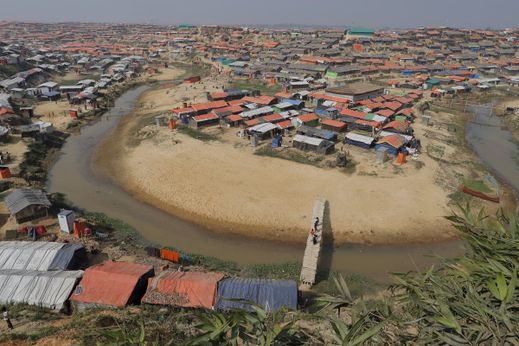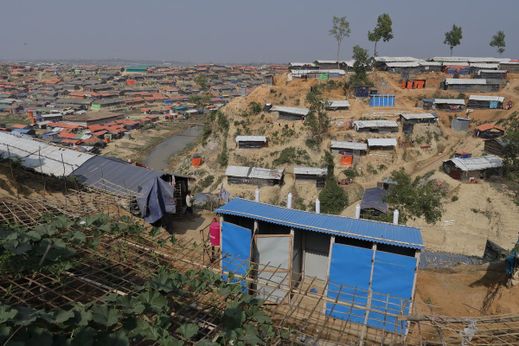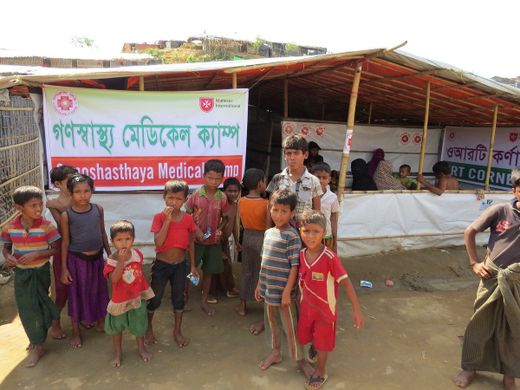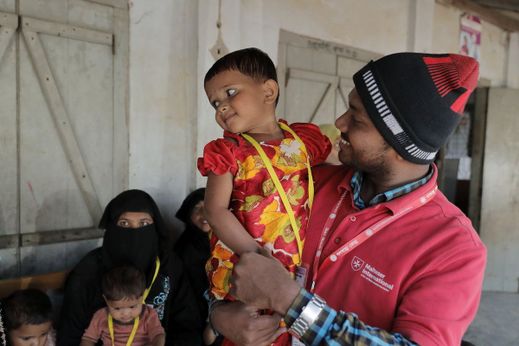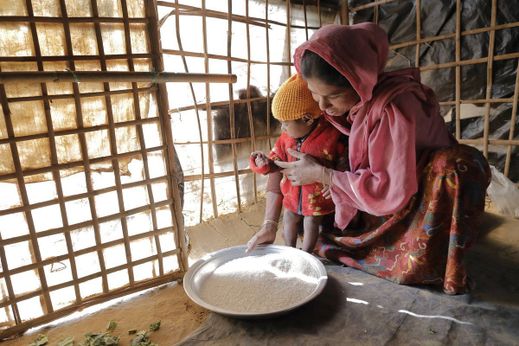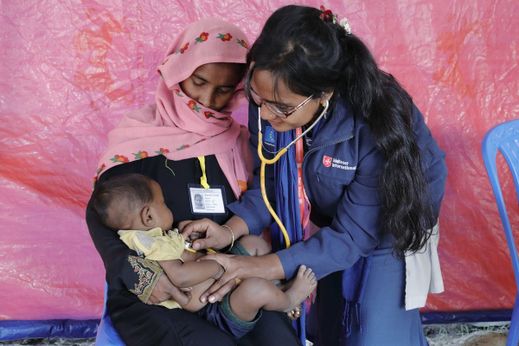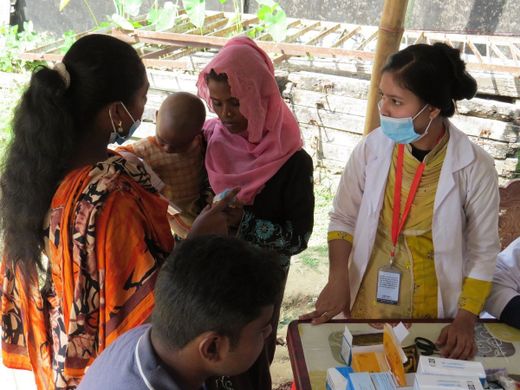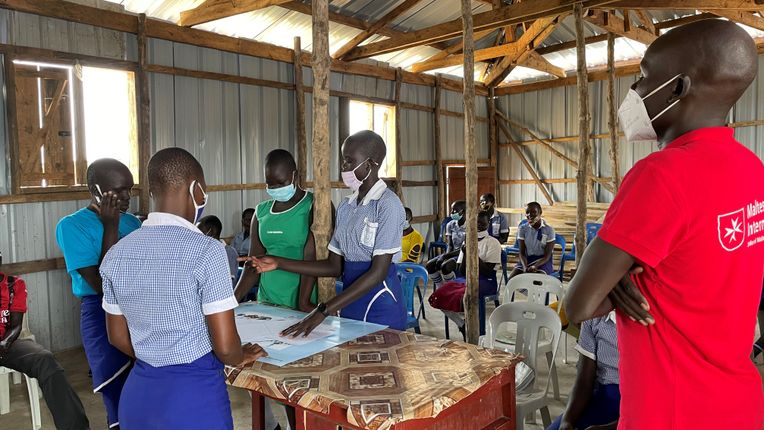
Pandemic prevention in Juba: "My healthy friend"
In a Malteser International project, schoolgirls in Juba County learn how to protect themselves against the coronavirus. People here are suffering particularly from the economic consequences of the pandemic.
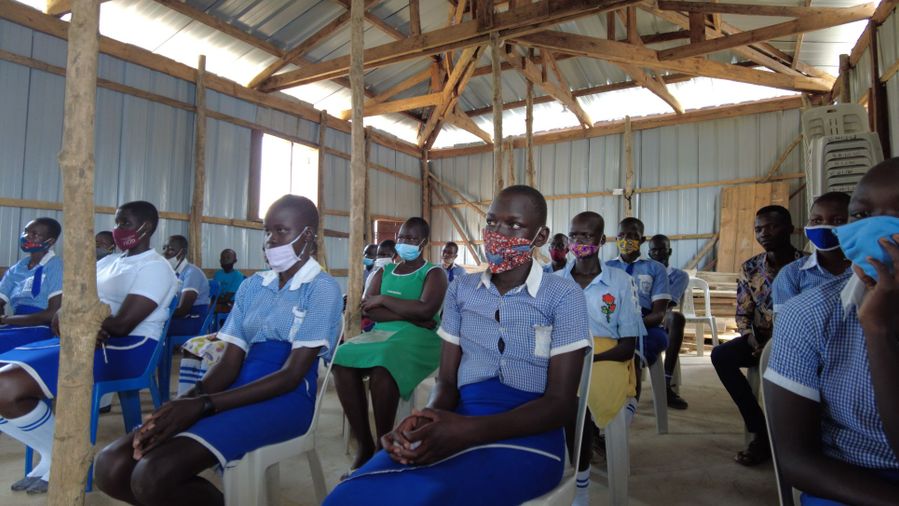
Face-down cards lie on the table, a poster with painted pictures underneath. Five students stand around the table in the common room of Gumbo Christian School and look for the matching pairs to the pictures on the poster. It is a bit reminiscent of a child's game of memory. "You always have a card that shows how you should act and a card that shows what you shouldn't do. You have to uncover these matching pairs and then compare them with the pictures on the poster," Wani Robert Lou, hygiene trainer at Malteser International explains to the children.
The game is not only intended to bring some variety into their lessons, but above all to show them how they can become infected with the coronavirus. One picture, for example, shows a group of children standing close together. On the matching counterpart, one child stands alone. "Remember, you can't stand close together. You must keep your distance when standing with your friends."
Periodically, Rober Lout drives to the small private school in Rajaf Payam in Juba County. It is one of 23 schools where Malteser International holds biweekly trainings and games for students and teaching staff. "The games help the children understand the problem. The pictures make it clear to them how they should behave. Keeping distance, wearing a mask, they see all that again in the pictures and through the repetitions they remember it. It's a good idea to sensitize the children," says Joseph Ayella, the school's headteacher.
After the long lockdown, many girls did not return to school
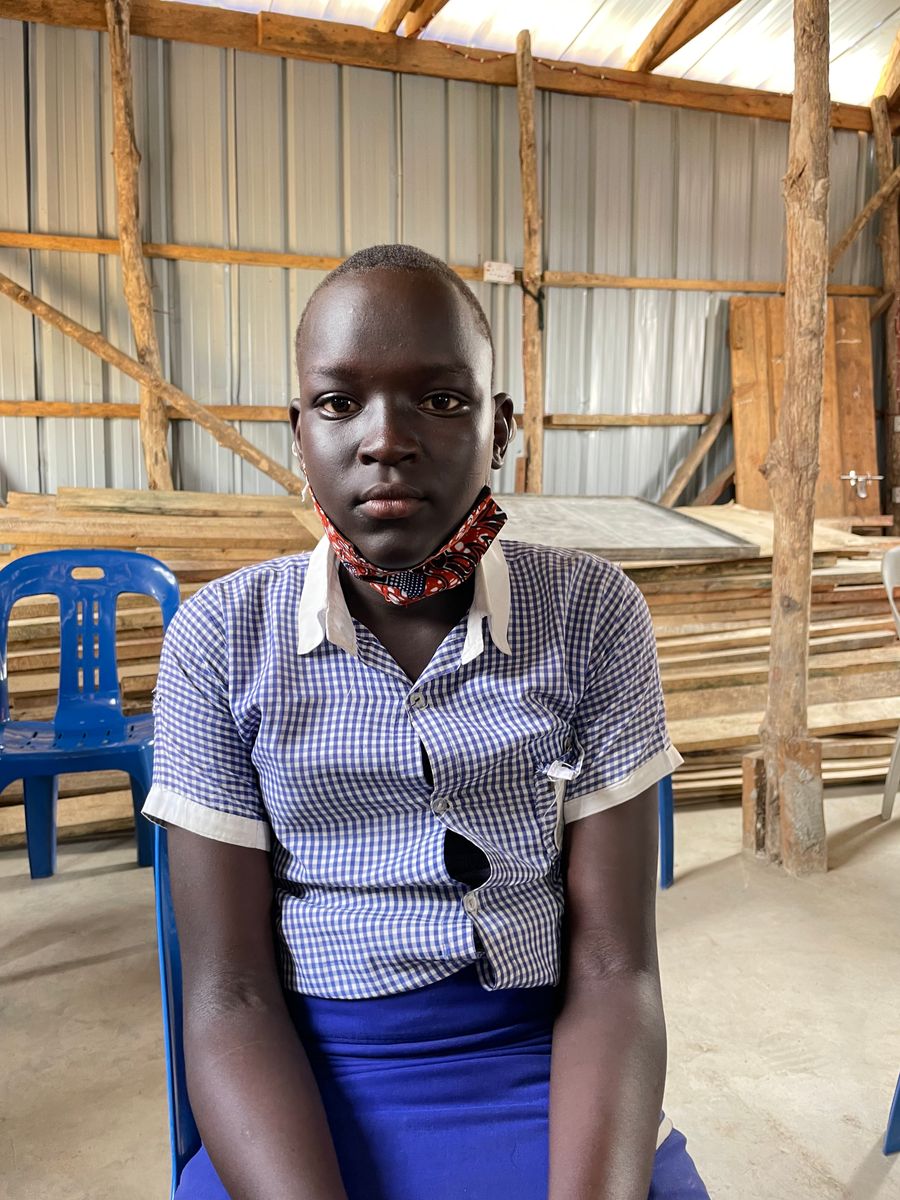
The numbers of those infected with the coronavirus in South Sudan are not particularly high: according to official figures, 12,804 people had contracted the virus by December 2021, and 133 had died from it. However, the number of unreported cases is likely to be much higher, because not much testing is done in South Sudan.
The corona pandemic has primarily had economic consequences here. Since the beginning of the pandemic, there have been repeated lockdowns and freedom of travel has been restricted; stores and markets were closed for months in 2020. The currency was devalued and many people now no longer know how to feed their families.
Schools closed for an entire year, and this was not without consequences either, says 14-year-old Jennifer Louis: "Many girls from our school did not come back after the lockdowns," she reports. "They got married and got pregnant. No one knew when the schools would reopen. The girls felt that if the schools were closed, they would have no choice but to get married. But teenage pregnancies are dangerous. The girls can die in childbirth if they are too young."
Games to fight the invisible danger
"Keep your distance, wear a mask, sneeze in the crook of your arm, wash your hands, these are the rules you must follow if you don't want to contract the virus," explains Robert Lou of Malteser International. And the games and repetitions are having an effect. The students Jasmin and Jennifer proudly explain how they can contract the virus and how dangerous it is.Not only because the pandemic can cause them to get sick, but also because they are sure that their friends who left school for good during the lockdown will not come back.
They see the danger not only in the fact that they can catch it. In any case, they don't want to end up like their schoolmates: Married young and pregnant. "Some of them are already earning their own money now, but they don't think about their future. For me, it's out of the question," Jasmin clarifies.
(January 2022)
